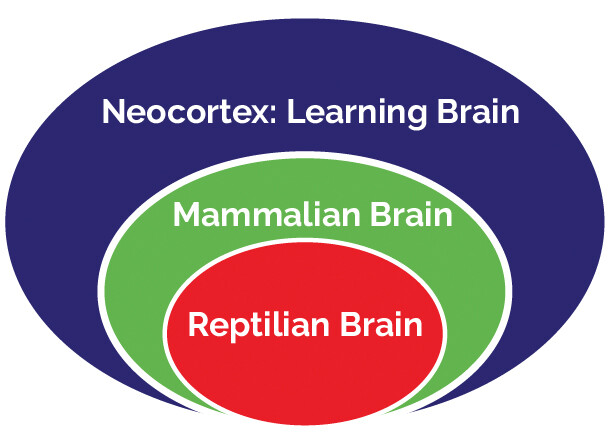Are the coaches expected to run the events and perform some duties in the newly designed system? At times - yes, especially being a role model or facilitating. But do we need to jump into and try to fix the situation when a less skilled facilitator or any other Agile practitioner is working? I bet you might give many reasons why don't, mentioning something like "People need to learn from their mistakes" or "It's not proper coaching, the client won't enhance their ability to handle this type of situations in the future". However, the expectation that an Agile coach should and even have to be a rescuer might be present or assumed by the organisation. Of course, it can be regulated explicitly in a coaching agreement but I'd like to look at reasons why these lifeguard-style interventions are not helpful by shedding some light on what happens with us when we are going through a stressful moment.
All perspectives presented below are not mutually exclusive but rather offering slightly different interpretations of the same phenomenon.
Triune brain
I've learned about this model while studying Clean Language and Systemic Modelling. Though this model is not physiologically accurate, it provides a way to understand human thinking, learning and behaviour. According to the model, our brain behaves like it has three different brains, with each brain doing a different job.

Triune Brain model, Paul McLean
The reptilian brain is the oldest part of the brain responsible for our survival. If we are in danger, this part of the brain takes over and will initiate "fight", "flight" or "freeze".
The next layer of the brain in our evolution is the mammalian brain. This brain is responsible for emotional safety, social behaviour, beliefs, values, norms, and laying things down in long-term memory. We take care of this brain when we agree to shared rules and norms, choose the right people to be with, and find social conditions that suit us.
The Neocortex is the part of our brain responsible for learning new things. It's the part that detects patterns, makes connections, and thinks of creative solutions. When we take care of what our reptilian and mammalian brains need, the neocortex is able to function well.
The key thing here is when the reptilian brain takes over, and this happens when we are stressed being unable to perform well, no new information can enter and make a change. No learning, no transformation, nothing.
Delayed feedback
I found another reason to postpone coaching interventions when I was reading "The Advice Trap" (by Michael Bungay). The author refers to research done by Peter Brown, Henry Roediger III, and Mark McDaniel that shows that “delaying feedback briefly produces better long-term learning than [providing] immediate feedback.” The insight is that if the feedback is immediate, it melds to become part of the experience itself. If it’s delayed slightly, the gap creates spacing, which improves retention.
This explains why a coaching conversation might be more impactful when "the dust has settled", there is a distance between the experience and a moment when the client reflects on it.
Realm
The effect of being in a realm is, in a way, similar to a state when we are hijacked by a reptilian brain.
Realms occur when clients can no longer cope with what is happening at the moment, and they go into an internal collapse. At this moment we feel extremely tired, overwhelmed or as unskillful as it can be imagined. We've been trapped. Realms are like small, personal enclosed worlds. What’s important to know is that realms are like self-enclosed bubbles. Once individuals enter their realm they are no longer available for input or communication. It’s as if they climbed into a capsule and closed the door. No new information can enter the system.
Even the most apparently cocksure performer is defenceless in those moments. They have always exposed more of themselves than they may realise and their vulnerability has to be respected. The time for ‘Notes’ is later when everyone has calmed down.
An obvious conclusion: the moment of a coaching intervention that would have higher chances to be successful should be chosen considering the mental state of the coachee. If there is an urge to get to the rescue, perhaps it's not coaching anymore and should it be called something else.

